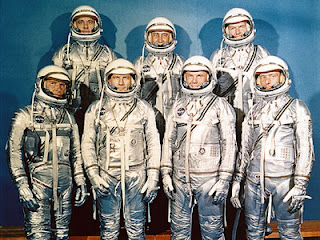Well, we were great. And, to the extent we concentrate on the basic fundamentals of investing in a positive future, we are great and will be great as a nation. Children born in the same generation as I was born believed that science, when diligently applied would solve problems, would end hunger, would cure Polio, would cure cancer and would make life better for everyone. We believed that and our parents sent us to school hoping this would be the future of America—that their children would launch us into a new golden age.
So what happened?
I would argue that we achieved that. Children born in the same era as I was invented the Personal Computer. This took business productivity and put it on steroids. Those computers are now mostly connected to the Internet and send and receive email instead of us writing letters and paying for a stamp for the United States Postal Service to deliver it in three to five days. Today, we drive around in cars that get 30 plus miles per gallon, many of which get more. We consider that "normal," when in the 1960s the average mileage of a passenger car was 14.3 miles per gallon. It's my generation that did that and they used science and engineering to do it.
So what else is science doing? It's finding ways to keep a premature birth alive at an earlier and earlier stage of gestation. Penn Health indicates that babies can survive as early as 23 weeks, although the survival rate increases by 3-4% per additional day of gestation between 23 and 24 weeks. At 24 weeks though, the chances of having a handicap due to the early birth are 60%. At 26 weeks, that drops to 40%. And at 24 weeks, premature births have a 50% survivability rate. This is well into the second trimester of gestation and full-term babies are usually born at 40 weeks on average.
Viability was highly questionable when I was growing up if birth happened before 8 months, but I don't think they had the types of neonatal intensive care units that they have today. But in the last 12 years, medical science has hit a wall. Neonatal viability has not increased in the past 12 years at all.
What the "personhood" people are forgetting about is the spontaneous abortion or the "miscarriage." If you want to insert religion into this, a miscarriage is God's way of saying, "Not this one," or "Not at this time." I have a very good friend who had two miscarriages before she had her first child. My mother had a miscarriage before she gave birth to my older sister (then four subsequent children, including me).
And the problem then becomes like the legal issues in the Central American country of El Salvador. El Salvador has criminalized abortion. If you are a physician in El Salvador and you perform an abortion, you may be arrested. This is certainly something that certain states in the United States want to do. But if you are a woman in El Salvador who has an abortion, you may face up to 30 years in prison as well.
The problem arises in the case of a miscarriage. Women in El Salvador are placed under suspicion if they have a miscarriage, either within the country or if traveling outside of the country. Also, The exceptions that tend to exist even in countries where abortion is prohibited—rape, incest, fetal malformation, the life of the mother — don't apply in El Salvador.
A "personhood" amendment to our Constitution would place all women who had a miscarriage not in a hospital to begin treatment to preserve her health, but in a police station to be questioned as to exactly what she did to cause an abortion.
But we do have an Amendment to our Constitution that, apparently does declare "personhood," though the current recipient is unlikely.
The 14th Amendment was adopted in 1868, and it gave the federal government ultimate power over the states in respect to the rights of newly freed slaves. The amendment sought to overturn state-level legislation that was being created to limit the liberties of former slaves after the Civil War. The federal government circumvented each one of these laws with one broad brush: Through the 14th Amendment, Congress granted equal protection under the law to every person.
Problem is, in the eyes of the law, corporations are artificial persons and have been so since they were allowed by the Kings of the sixteenth century. When our present Constitution was being considered, Thomas Jefferson suggested explicit language to govern corporate entities, like requiring maximum life spans, be put into the Constitution. This wasn't done.
 |
| Southern Pacific Locomotive |
A former railroad president-cum court reporter named Hartmann claimed that the Supreme Court had ruled that corporations were people. This was later upheld as precedent in Pembina Consolidated Mining and Milling Co. v Pennsylvania.
Now, all of a sudden there were Supreme Court decisions affirming that corporations are people.
But here is where I have problems: A woman can have a premature birth and that baby can be viable in the late second trimester. This baby can grow up and kill someone and, in many states, be put to death. But nobody can give the death penalty to a corporation. Nobody can jail it. Nobody can confine it. Nobody can stop it from predating on civil society.
Until there is a means by which states can legally kill a corporation, I cannot believe they are people and I cannot believe that they have a right of "freedom of speech," etc.


